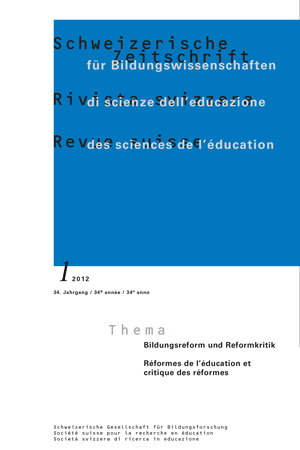The «Grammar of Schooling» as a populist resource. A case study on two failing school reforms in Germany and Switzerland
DOI:
https://doi.org/10.24452/sjer.34.1.4877Keywords:
Education policy, governance, school reform, direct democracy, populismAbstract
This contribution presents a comparative study of two school reform projects in Germany and Switzerland, both supported by a strong parliamentarian majority, yet rejected by direct democracy mechanisms. Both reform policies aimed at improving disadvantaged children’s educational opportunities without sacrificing the achievement principle. Primary school reorganization played a key role in both projects. The author argues that this reorganization plan has been confronted, in both countries, with stereotyped conceptions of what a «normal school» should be. Using the concept of Grammar of Schooling, the author shows how such conceptions are exploited as populist resource within direct democratic mobilization.
Downloads
Downloads
Published
Issue
Section
License
Copyright (c) 2012 Carsten Quesel

This work is licensed under a Creative Commons Attribution 4.0 International License.



